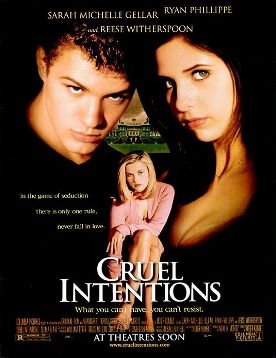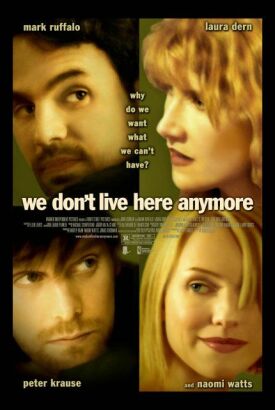Mad City
Mad City, directed by Costa-Gavras, has a good subject, but it
can’t seem to stay focused on it. The
director, known for such anti-American films as Z and Salvador,
here ostensibly changes his subject to the media. Now I yield to no one in my
dislike of the media, and especially of television newsmen, but I
can’t escape the feeling that the bad
guys who get the Costa-Gavras treatment in Mad City are getting a bit of
a bum rap. This is a film in which the serious anti-media point gets lost,
becoming merely a subset of the larger anti-Americanism which has been the
preoccupation of Costa-Gavras’s
career.
The two main media figures in this film are Max Brackett (Dustin Hoffman), a
former network newsman now exiled to the provinces, and Kevin Hollander (Alan
Alda), the bigfoot network anchor whose embarrassment on the air by Brackett
some years before is what produced the exile—and a lasting enmity. One day
in covering a routine story about cutbacks at the local museum of natural
history, Brackett inadvertently walks into a
“hostage
situation.” One of the two museum
security guards, Sam Baily (John Travolta), who has been laid off, comes in to
talk to the proprietor, Miss Banks (Blythe Danner), and plead for his job,
bringing with him a shotgun to get her attention.
When she attempts to brush him off he pulls out the shotgun. Meaning to shoot
into the air, he accidentally wounds the other guard and then finds, after the
police and emergency services arrive, that he must keep as his hostages the kids
from an elementary school’s field trip
at the museum. Brackett is in the
men’s room at the time all this
happens, and begins broadcasting live from a pay phone. After Sam finds him
there, and brings him out, he becomes in effect poor, stupid, gullible
Sam’s media adviser.
“He wants to know what my demands
are,” says Sam in bewilderment when he
takes a call from the chief of police. Max then advises him what to ask for. He
says what Max tells him to say and then turns to him like a little boy seeking
approval: “How was
that?” he says.
“Sounded good to
me,” says Max.
It is a good idea, as I say, which does not quite work. The central character
of Max is too incoherent. We do not see enough of him to understand the deep
contradiction in his character between the cynical manipulator of media, willing
to do anything for a story, and the old softie he was before (when he ridiculed
Hollander on the air for asking about the body parts from an airplane crash) and
after (when he takes Sam’s side
against the network and so throws up his chance to return to network news).
Likewise, Hollander is a one-dimensional bad guy, and that kind of shallow evil
always looks weak and unconvincing on screen; Sam Baily has some good lines and
is done proud by Travolta, but he is at bottom a mere sentimental
gesture—too good to be true.
We see the same kind of unconvincing characterization with
Max’s cute little assistant, Lorrie
(Mia Kirshner) who, predictably enough, is transformed in the space of a couple
of days under Max’s tutelage from a
sweet young thing, wondering why he has told her to call the
station’s remote unit before she calls
the police, to a heartless monster. It is Max who says to Lorrie, who tried to
help the wounded security guard: “You
left the camera and went to help him. Why
didn’t you take the camera if you were
so humane?” Yet he is the one with the
conscience and she the ruthless careerist in the end. How does that happen?
The question is never answered because Costa-Gavras is no more than
superficially interested in these characters, or even in the lies and
manipulations of the TV newspeople. Rather, it is the cover those lies give to
the vicious, fascist, right-wing America, including the murderous thugs of the
FBI and the motley crew of militiamen and white supremacists who rally to poor
Sam Baily’s pathetic cause, which
constitute the film’s real concern.
What a surprise! This picture has its moments, but it finally collapses under
the weight of the improbability that its hatred of America should be directed at
the American media, which in fact would be more likely to share in that
hatred.
Discover more from James Bowman
Subscribe to get the latest posts to your email.






